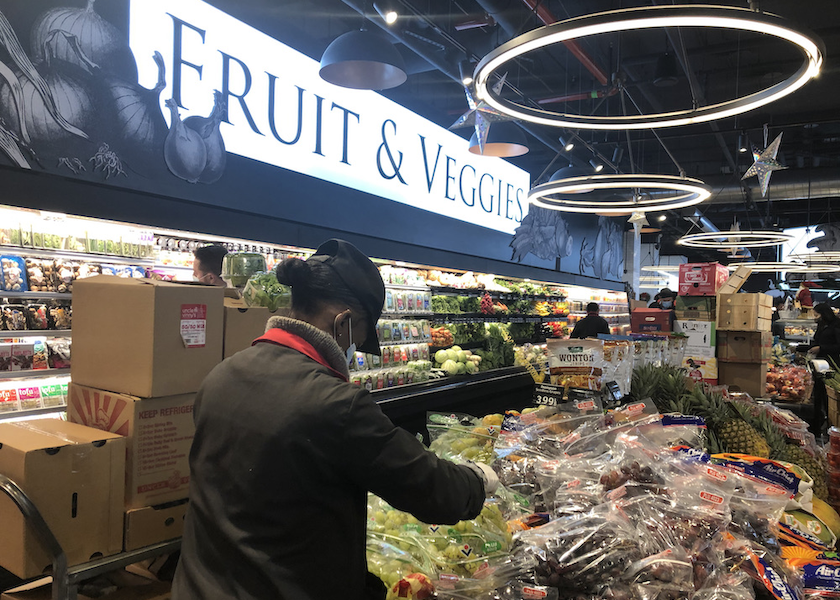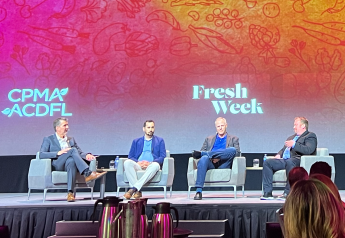The happy factor: Retaining employees during 'the great resignation'

The lines between business and personal life have blurred more than ever, especially with 45% of full-time employees in the U.S. working partly or fully remotely, according to a September Gallup poll — often juggling work with caregiving loved ones.
And that data was collected before the highly infectious Omicron strain of COVID-19 squeezed the winter 2022 workforce even further. Those still available to work are stretched thin.
Even essential employees working nonstop on the front lines of retail, wholesale and distribution can still take work home with them or bring their personal lives to work.
Now, more than ever, employee wellness is not just a human resources concern. Nor is it simply a health issue for medical professionals or a woo-woo concept for softies.
Wellness is a matter of ensuring you have enough workers to get the job done.
The year 2021 was also the year of the Great Resignation. In April of 2021, more than 4 million Americans quit their jobs. That’s the highest quit rate on record since the Bureau of Labor Statistics began collecting data in 2002.
American workers saw the current job market as an opportunity to make a change: leave unsatisfying jobs, pursue more appealing roles or change careers. They are also experiencing a lot of stress with the unpredictability of pandemic-related health, family and supply chain issues.
“It’s difficult because, really, we don’t pay a lot. It’s rough. We try to treat them well, give them days off, if they need changes in schedules, be flexible. Everybody’s real sensitive now, and it’s not an easy job,” said Marc Goldman, director of produce and floral at Morton Williams Supermarkets, the Bronx, N.Y.
Golden rule
At a Morton Williams location on an upscale West End block of Manhattan, Apostolos Tepelidis tries to be the kind of produce manager he wished he had.
“When I was a clerk, my experience was managers were too harsh. I like to be very calm and work with them,” he said from behind a light-blue surgical mask as he stood by wicker baskets of limes, lemons and oranges on a chilly December morning. “We have to work together to accomplish this. By seeing that I’m there, working alongside them, they see that and are satisfied.”
Just be nice and appreciative, said Brandon Issa, regional manager for Brooklyn Fare, which has three stores in New York City.
“With the labor shortage, it’s more stressful, and you rely on them. To retrain someone can cake at least four months,” Issa said.
Communication
Managers need to be constantly communicating with their team, said Mimmo Franzone, senior director of produce, floral and merchandising at Longo’s, Vaughan, Ontario.
“We have a strong focus on job strategy, making sure they’re happy with their working conditions, getting enough work hours to support their families and cross-training if they’re looking to do something else, whether it’s a full move or split shifts,” Franzone said.
At the store level, it’s important to create a culture where employees feel safe, as well as satisfied with their jobs, he said. Longo’s is launching an on-demand pay system in which salaried and hourly employees don’t have to wait until the end of the week or month to get paid.
“People are stressed. That’s a game-changer in keeping your teams happy,” Franzone said.
"We are making significant investments in wages, benefits, safety and communications to attract and retain good talent." — SpartanNash CEO Tony Sarsam
Grand Rapids, Mich.-based grocery distributor and store operator SpartanNash Co. saw virus cases triple among its staff in recent weeks, President and CEO Tony Sarsam said in early January. Although there have been no hospitalizations yet, about 1% of its 19,000-person workforce reported having the virus in January and late December, compared with about one-third of a percent a couple months ago. Associates are stretched thin.
“We are making significant investments in wages, benefits, safety and communications to attract and retain great talent. Ultimately, it comes down to putting 'People First,' our culture philosophy, and something we believe is going to help us win the war for talent," Sarsam said. "It means doing whatever we can to put the right tools, resources, recognition and support in place."
Mental health matters
Keeping your staff happy — or at least job-satisfied enough to retain them during this time of such labor flux — is top of mind.
Considering your employees' mental health can seem "extra" when there’s product to move, shrink to reduce, shortages to troubleshoot, material delays to consider and profit margins to increase.
You might be battling these challenges with a smaller workforce or a workforce that’s increasingly calling in sick with a coronavirus infection or exposure.
Physical, emotional and family-related health issues was listed as the second-most common reason people left their jobs, after the number one reason of seeking opportunities for career growth, achievement and security, according to the Work Institute’s 2021 Retention Report.
“For years, it has been reported by many that employees leave their jobs because of pay,” the report said. “This simply remains untrue, and the number of employees citing pay as the root cause of departure has declined 23% since 2018.”
Finding purpose
People stay at their jobs when the company culture is thriving and, when they have a clear sense of purpose, they feel like their voice is heard, they’re a viable part of the team and they can effect positive change.
“Personal fulfillment matters — a lot,” Lydia Durkovic said in an Oct. 28 blog post for Trello, a workforce management software company. “By aligning employees’ interests with the organization’s larger purpose, companies can better engage (and retain) their employees.”
Even in “normal” times, younger generations are increasingly seeking work that aligns with their values and provides meaning.
Millennials (born between 1980 and 1996) and Generation Z (born between 1996 and 2010) comprise about half the global population, and they are foodies. They are also the loneliest, most anxious, stressed and depressed generations on record, Eve Turow-Paul wrote in her book, “Hungry,” published in 2020.
“Numbers of close confidants have plummeted worldwide, and people are spending less and less time in person with friends. Concurrently, stress is mounting,” she said.
And Turow-Paul made that observation before COVID-19 changed the world. All humans, regardless of age, have three basic needs: control, belonging and purpose, she said.
Learn more from Turow-Paul: Why millennials, Gen Z care about produce
Produce managers, directors and C-suite executives need to explore ways to reduce employee anxiety, as well as encourage, inspire and motivate their staff, thereby instilling loyalty.
Besides competitive pay and scheduling, a manager’s day-to-day treatment of their employees matters, said Armand Lobato, who has more than 40 years of senior management experience in retail and foodservice. He's a frequent contributor to The Packer and PMG.
Staffmembers need honest, positive feedback on their performance and consistent direction to succeed in their current and future roles, he said.
“By providing employees with proper training, sincere attention, compliments and direction in the most professional and kind manner, employees will, in turn, provide their manager with what they desire in an employee,” Lobato said.
Related news: Read about more labor issues and news.







